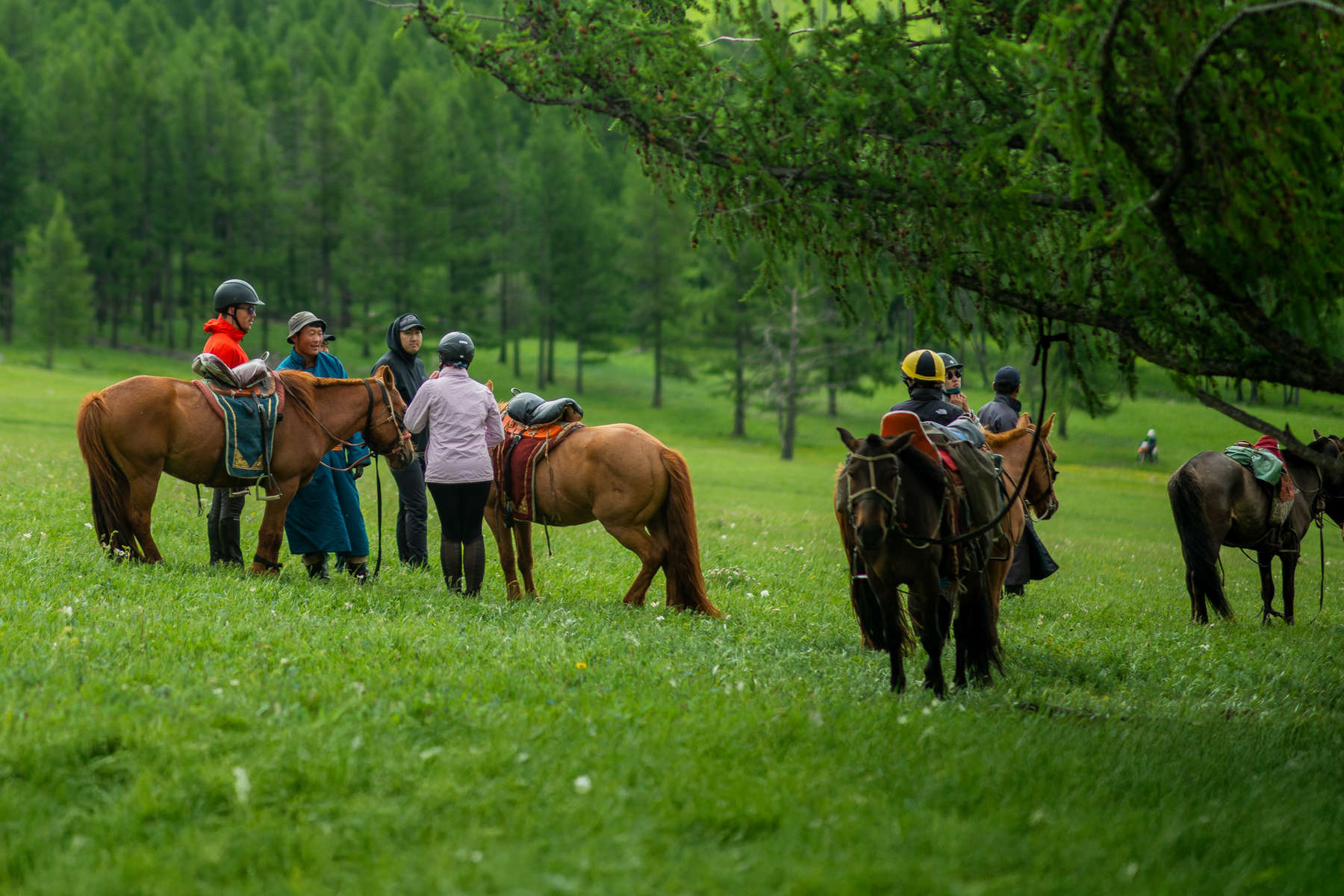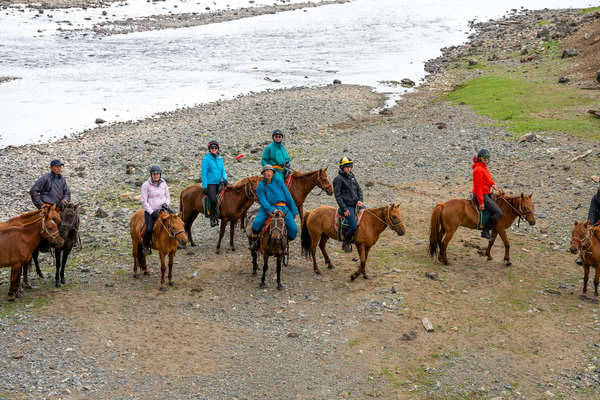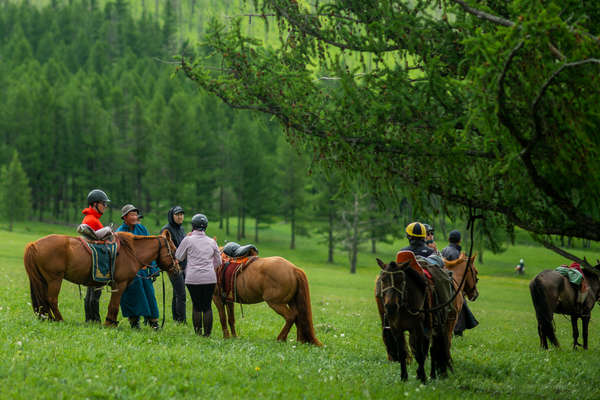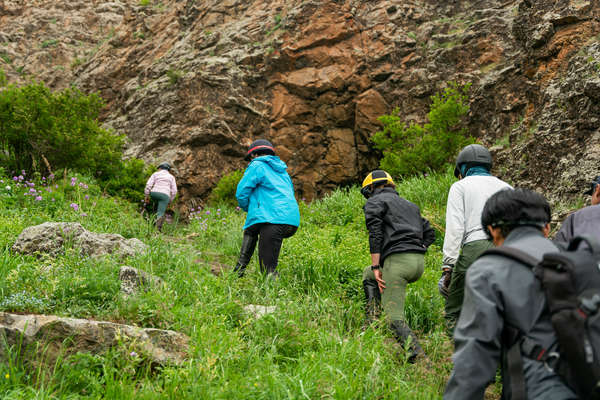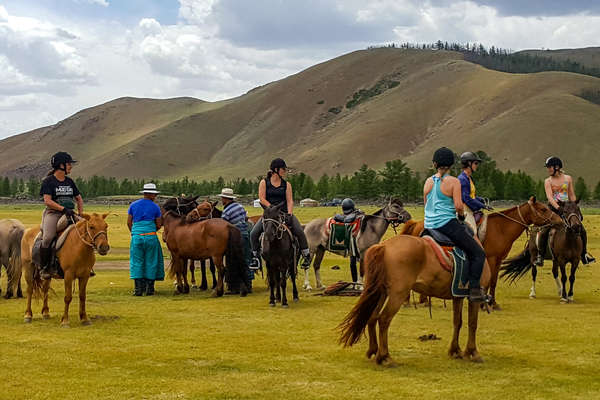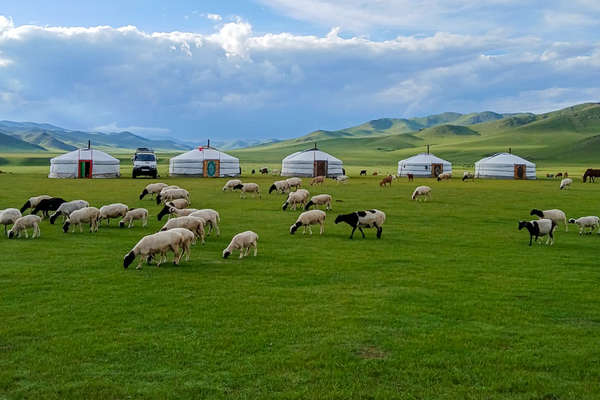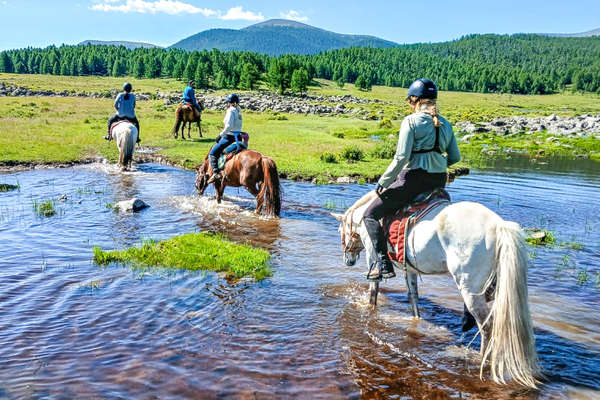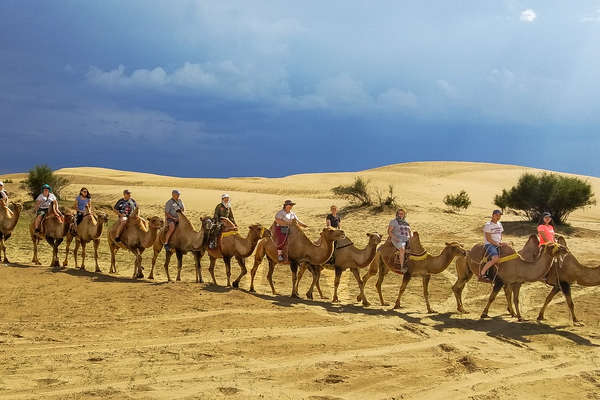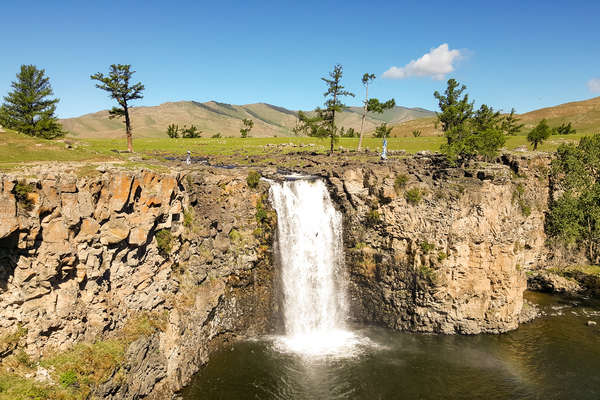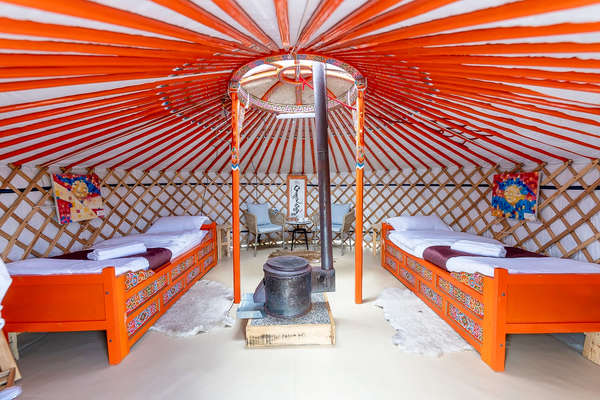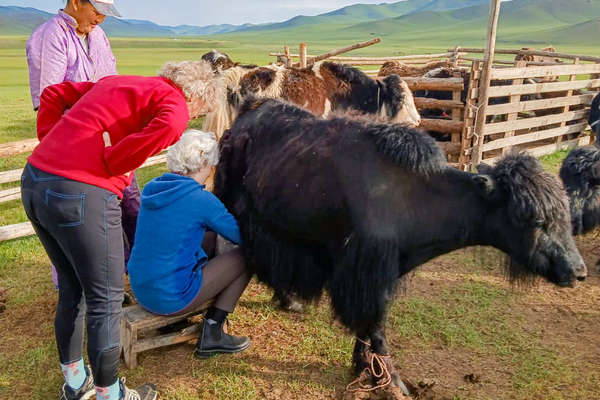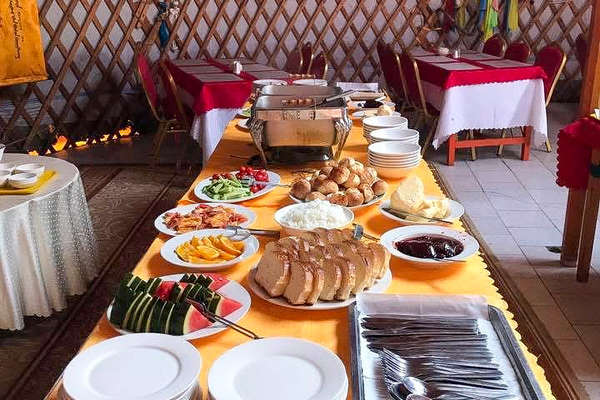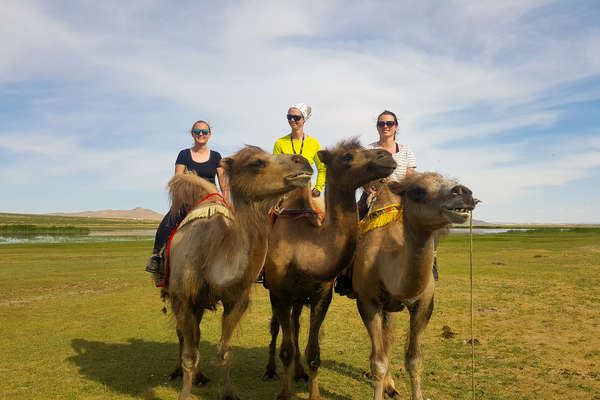Comfort
The first and last nights are spent in Ulaanbaatar, and you will stay in a double, twin or triple room at a hotel with private bathrooms and wifi.
For 4 nights, you will be hosted by local families. You will sleep in a yurt with other guests, separate from the family. There are 3-5 beds in a yurt. The families don’t provide shower facilities but you will be provided with a portable shower (you may also bathe in nearby lakes and rivers). Toilets may be compost toilets or holes in the ground.
For the remaining 4 nights, you will sleep in yurts at tourist camps, which have electricity, toilets and showers, and a dining area.
Please note:
Yurts may be mixed between male and female guests, and when staying with local families, beds vary in comfort. You will need a sleeping bag (available to rent free of charge or you can bring your own) and we recommend a power bank for charging your devices on those evenings (there is no electricity when staying with local families). You may also be able to charge your devices in the support vehicle on driving days.
Meals
Meals are carefully arranged to give you a taste of Mongolian life: Most meals are hearty and meat-based, featuring beef, lamb, and chicken, served with rice, noodles, bread, flour-based dishes, and vegetables. You’ll also enjoy treats like jam, honey, butter, aaruul (dried cheese), milk tea and eggs. Dietary requirements can normally be accommodated, please inform your travel advisor upon booking.
Water:
Do not drink from unknown sources. You will be supplied with fresh water to drink. You may also bring water-purification tablets such as Micropur.
Climate
Mongolia enjoys over 260 sunny days a year and experiences very little rainfall. However, summer brings the most precipitation. The country often sits at the centre of a high-pressure system, keeping the skies clear most of the year, earning it the nickname "The Land of Blue Skies."
Despite the sunshine, Mongolia experiences an extreme continental climate due to its geographical features: a vast, semi-desert plateau averaging over 1,500m in altitude. Summer temperatures can fluctuate wildly, ranging from +3°C to +35°C during the day and from -3°C to +20°C at night.
We recommend wearing layers and carrying rain gear, as the weather can change quickly.
Tips
If you are happy with the service you receive from your local guides and driver then you may wish to leave a tip. In order to remain consistent with the standard of living, we would recommend approx €60 per person to be shared between the team.
Packing list
Please pack carefully and sensibly: the following guide is here to give you an idea of what to bring. A support vehicle will carry your luggage for most of the ride so there is no weight limit as such, but we recommend approximately 20kgs. Please remember that the region can be cold and the weather extremely changeable -- please bring layers and rain gear. We recommend that you pack essentials in your hand luggage - such as your sleeping bag, towel and sanitary products (within allowance), rain jacket and riding gear -- just in case your luggage is delayed.
Please note: you will need to separate your belongings and pack a small bag (we'd recommend a dry bag) for days 5-7 when you visit the Naiman Nuur lakes (max 8-10kg), as the luggage will be carried by yaks. You can leave the rest of your luggage in the support vehicle and pick it up later.
Head
- Equus Journeys strongly recommends that you wear a riding helmet and that you take your own to ensure a correct fit. There are many lightweight options available nowadays
- Sunhat for when not riding
- Sunglasses - with a cord attached so they don't fly off when riding
- Buff or bandana
- Warm hat for cold nights
Upper body
- Thermals (long or short-sleeved)
- Long-sleeved shirts provide protection from the sun and are an extra layer
- T-shirts
- Lightweight fleece or jumper
- Warm fleece or jumper (and a spare in case one gets wet)
- Warm and waterproof jacket - it can rain at any time of year, and the evenings can be particularly cold. No ponchos or anything that can flap around!
Legs
- Lightweight, comfortable riding trousers or jodhpurs - we recommend riding in them at home before taking them on holiday to ensure they don't rub
- Thermals
- Casual trousers for the evenings, such as jeans or tracksuit bottoms
- Waterproof over trousers
Hands and Feet
- Comfortable riding boots. We recommend short boots with half chaps but you may wish to take long chaps as an extra layer against inclement weather. We don't recommend taking your favourite long leather boots in case they get damaged. We would suggest something with a good grippy sole.
- Waterproof shoes/boots can be useful for abundant dew in the mornings or when it rains
- Trainers or equivalent light shoes for moving around in the evenings
- Several pairs of warm, thick socks
- Gloves - your hands are particularly exposed to the sun, cold or rain whilst riding. Waterproof gloves can be particularly useful
Nightwear
- Sleeping bag. You need at least a comfort factor down to minus 5°C, but would recommend at least minus 8 or 10°C (especially outside of July/August). It is possible to request a sleeping bag from the local team (available to rent).
- Sleeping bag liner - silk, cotton, or fleece - adds an extra layer
- Camping pillow (not essential but very useful)
- Pyjamas or tracksuits, or thermals for sleeping in
Please remember it can get very cold at night, especially if you are travelling in June/September: pack accordingly.
Other useful items
- Water-purification tablets
- Swimsuit - for swimming/bathing in lakes
- Towels - camping ones will both dry and pack more easily
- Small backpack for accessing items required during the day (carried by support crew)
- Camera and high capacity memory card. Spare battery
- Bumbag for carrying your camera and small items whilst riding
- Head torch or small torch for moving around camp at night - bring spare batteries and bulbs
- Water bottle (2 litres or 2 x 1 litre)
- Wet Wipes or equivalent (for when washing facilities aren't available)
- Small plastic bags for rubbish
- Ear plugs (for light sleepers)
- Solar charger/power bank
Medical kit
- Micropur tabs
- Sunscreen and lip balm - should be high factor
- Insect repellent, preferably containing deet
- Any medication you regularly take
- Blister plasters in case of any rubs
- Antiseptic cream, plasters, aspirin, anti-histamine, insect-bite salve etc...
- Spare prescription glasses/contact lenses
- Eye drops
- Imodium or similar anti-diarrhoea medication
- Re-hydration sachets
- Water purification tablets
- Antiseptic wipes
- Handwash gel
Gifts for local families
Mongolian tradition wants the traveller to thank his host for his kind hospitality by offering small gifts. Some ideas for gifts include fresh vegetables and fruits (to be bought on the way), cakes or sweets (from home or bought locally), other local products/specialities from your home country, toys or books for children, kitchen utensils or camping accessories. You may also wish to take some photographs or postcards of your home with you to show your hosts.
Please avoid offering soaps, pens, or used clothes.
Other recommendations:
- Please print copies of your passport and insurance documents and take them with you.
- Backpacks should not be worn whilst riding. We recommend bringing a small bumbag or a coat with pockets so that you can carry small items with you during the day (camera, sunscreen, lipbalm etc). The guides will carry saddle bags carrying water.

